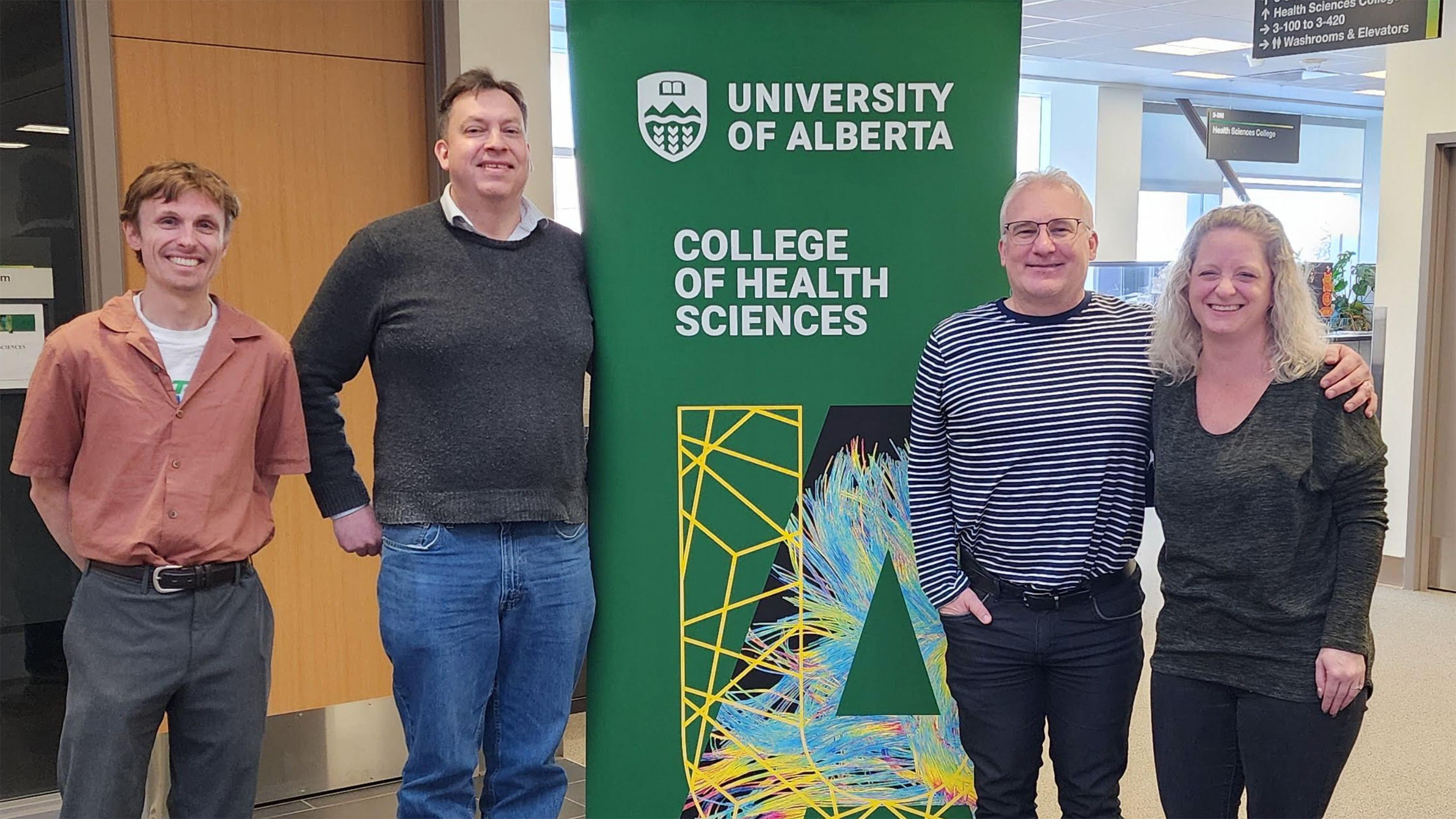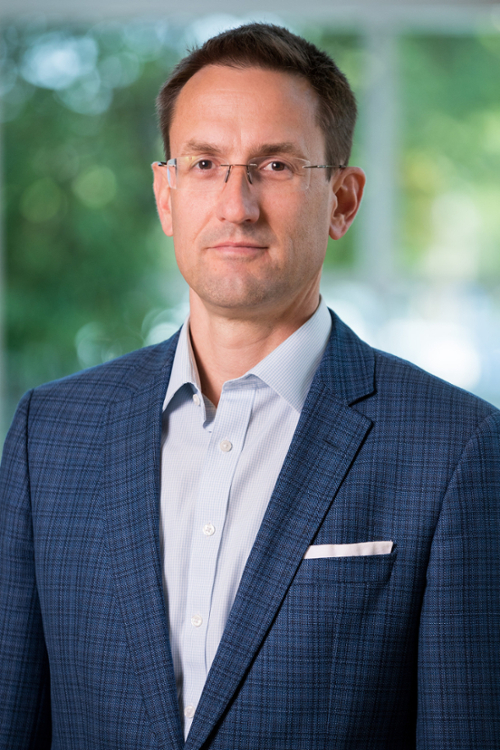Two College of Health Sciences faculty awarded grants from the Cardiovascular Research Institute
Shirley Wilfong-Pritchard - 06 February 2024

(From left) Stephen Foulkes, postdoctoral fellow, Faculty of Nursing; Sean McMurtry, associate professor and director of the Thoracic Aortic Disease Clinic, Division of Cardiology, Faculty of Medicine & Dentistry; Mark Haykowsky, professor and endowed research chair in aging and quality of life, Faculty of Nursing; and Rachel Skow, postdoctoral fellow, Faculty of Nursing. (Missing) Richard Thompson, professor, Department of Biomedical Engineering, Faculty of Medicine & Dentistry.
In a major boost to their investment in much-needed cardiovascular research, the University of Alberta’s Cardiovascular Research Institute (CVRI) recently awarded Dr. Margaret “Marmie” Perkins Hess Heart Research Pilot Grants to two College of Health Sciences faculty working in the area of heart health.
Each grant is valued at up to $50,000 for one year and funded by the Dr. Margaret "Marmie" Perkins Hess Endowment for Heart Research. The pilot grant program aims to encourage new proof-of-concept projects with the potential to develop into larger-scale or longer-term initiatives that could attract external funding.
Learn about this year’s grant recipients and their research projects.
Mark Haykowsky
Faculty of Nursing
“Impact of exercise on the heart and aorta in people with aortic dissection”
Aortic dissection (AD) is when the aorta — the main blood vessel that transports oxygen and nutrients from the heart to the rest of the body — becomes fragile and starts to tear a little on the inside. High blood pressure, which patients can manage with medication and exercise, is a cause of AD.
While doctors recommend regular exercise to improve overall physical and mental health in people with AD, there is little research on the safety of exercise in this population. Patients often feel afraid to be physically active in case they damage their aorta.
“This will be the first study using novel MRI technology developed by our interdisciplinary health science research team at U of A to image the heart and aorta during exercise,” says Haykowsky. “The funding also provides a unique training opportunity for a College of Health Sciences undergraduate student to obtain further knowledge in the cardiovascular physiology and imaging field.”
The findings will help provide guidelines for the type and intensity of aerobic exercise patients with AD can safely perform.
Haykowsky is a professor in the Faculty of Nursing, a research chair in Aging and Quality of Life and director of the Integrated Cardiovascular Exercise Physiology and Rehabilitation Laboratory.
 |
Darren Freed
|
Thousands of Canadians suffer from heart failure, which is an incurable condition. “The best we can do is a heart transplant,” says Freed. “However, there aren't enough hearts to go around, partly because of how we preserve them on the way to the recipient.”
Putting hearts on ice doesn’t always preserve them long enough, or allow for resuscitation of dysfunctional or compromised hearts. Instead, a machine is used to provide normothermic perfusion — a continuous, temperature-controlled solution of nutrients — to better preserve the donor heart. The current standard, however, is to use a very high amount of sugar, which may cause damage to the heart.
Freed’s study will test new nutritional strategies to optimize metabolic support to increase the preservation time of a heart and help more people get the life-saving transplants they need.
“This funding is essential to allow us to expand our research program into this important area,” says Freed, “and will allow us to make a significant contribution to the field of heart preservation for transplantation.”
Freed is a professor in the Department of Surgery, a cardiac surgeon at the Stollery Children’s Hospital and the Mazankowski Alberta Heart Institute, and a clinician-scientist interested in heart and lung failure and novel techniques to treat these conditions.